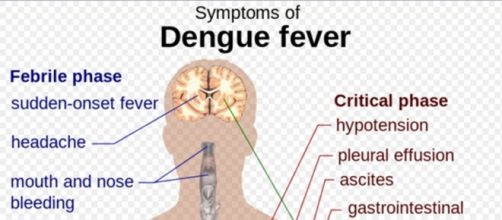Dengue Fever is caused by a virus, which is carried by mosquitos. There are many mosquitos in South Africa, but the disease is relatively rare. The World Health Organization has warned that the illness is spreading in African countries, so there is a small chance that visitors to South Africa might contract the virus.
Symptoms are similar to malaria with flu-like symptoms headaches and raised a temperature. Eyes may become itchy and glands will swell up. Malaria is prevalent in South Africa but is not likely to be misdiagnosed as Dengue is also accompanied by a measles-type rash.
In the early stages of the illness, nausea causing vomiting is likely to occur.
There is no known medication to treat the illness. Clinics and hospitals in South Africa are only able to treat the symptoms. Fever causes dehydration so fluid intake is essential. Fluids can be taken by mouth or if available, a drip will be attached to the patient.
South African visitors can start treatment straight away by visiting any pharmacy and buying rehydration sachets. These fruit flavored sachets contain electrolytes and mineral salts the body needs to rehydrate itself.
In all instances of fever with flu-like symptoms and a rash people should consult a doctor. There are clinics in nearly every town and village in South Africa where medical professionals will be able to assist with a correct diagnosis.
For those in more remote areas, or who prefer to use the services of South Africa’s Traditional Doctors there are other alternatives. Travelers to Africa are cautioned to rather seek the advice of a medical doctor.
Traditional doctors in South Africa will often advise patients to take cayenne pepper with water to help reduce the fever. Another suggested drink that is recommended is the juice of aloe vera. This is a very bitter drink. If you are in a rural area where you would need to harvest your own, or rely on the Traditional Doctor to supply you with it, but most supermarkets and health shops stock a pleasant aloe vera juice that is palatable.
Another natural remedy that may be recommended is the fruit of the Baobab tree which is called Cream of Tartar.
The pulp is very high in Vitamin C. A pleasant and refreshing drink can be made by placing the soft and powdery contents of a cream of tartar pod in water. Vitamin C is well known for its healing properties.
Even if you are not sure whether you have dengue fever when you are feeling ill, consuming a lot of rehydrating sachets, aloe vera juice, and cayenne pepper will at worst only help you get over whatever fever you have. Certainly they are unlikely to harm you further.
Dengue fever presents several stages. It lasts for about seven days, but can seem to fade away after two or three days of rest and rehydration. It is very important to continue hydration and fever treatment even if the symptoms seem to go away inside of a week.
The patient may very well suffer a relapse if treatment is discontinued too early. The relapse often comes with debilitating pain in the bones and joints. The pain is severe enough to have given Dengue fever the nick name of Bonebreak Fever.
Dengue fever can be avoided by taking the same precautions as for malaria. In the evenings and late afternoons, arms and legs should be covered. Carry a good supply of mosquito repellant at all times. Campers should keep their tents zipped up to keep out insects, snakes, and mosquitos.
South Africa’s proposed biodiversity strategy 2015
Addressing the incomprehensible wildlife-poisoning crisis in Africa

